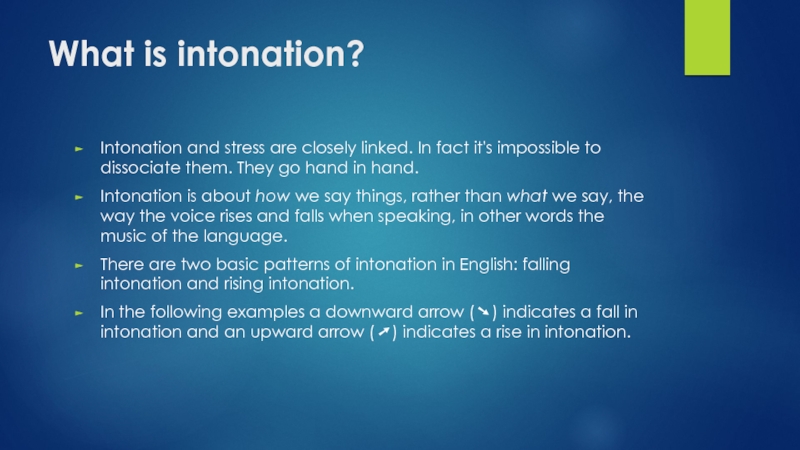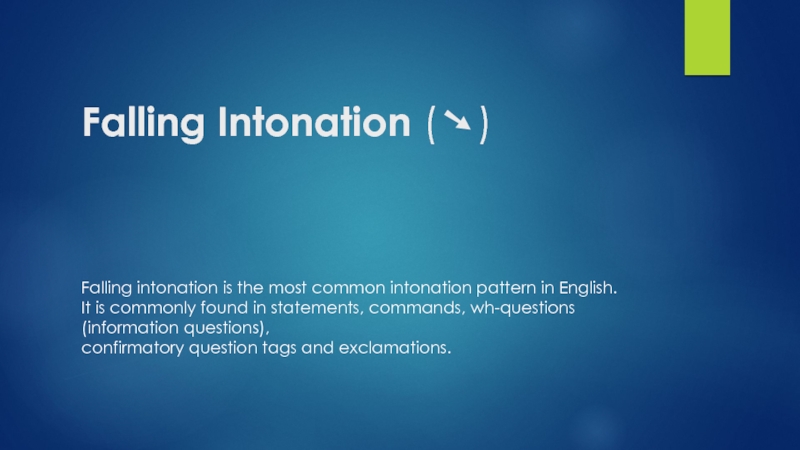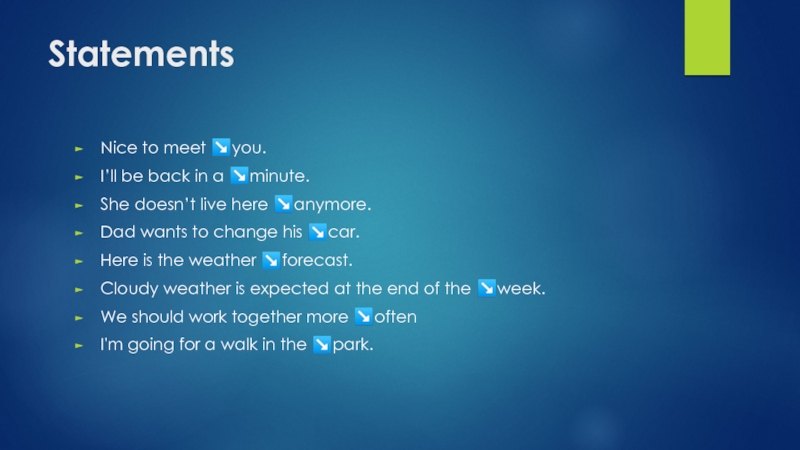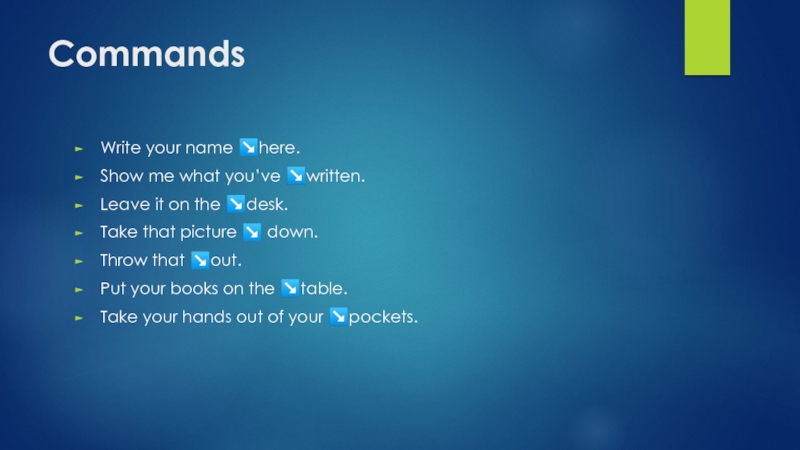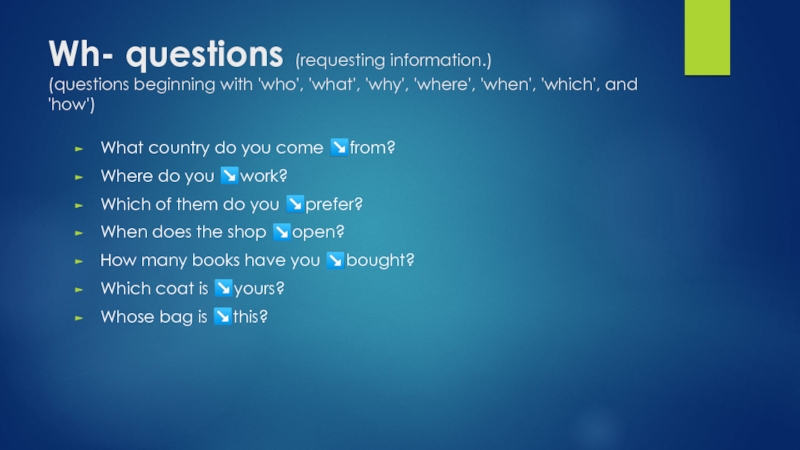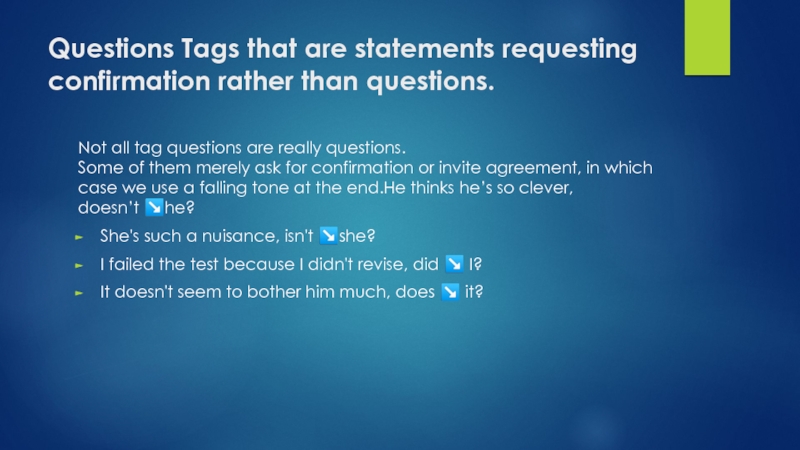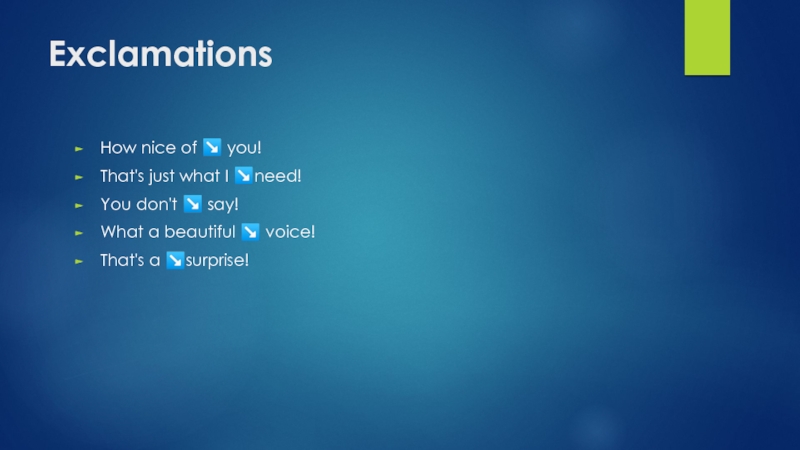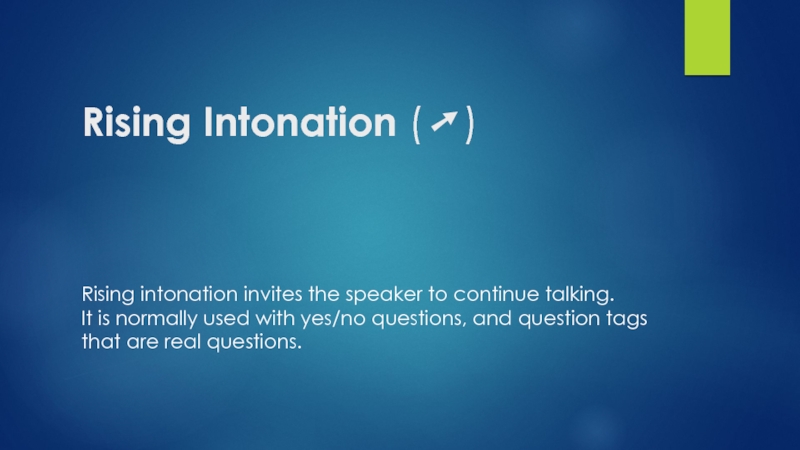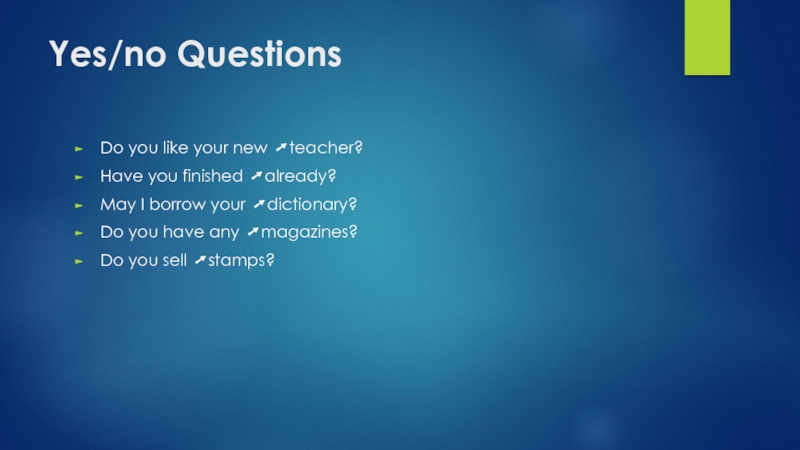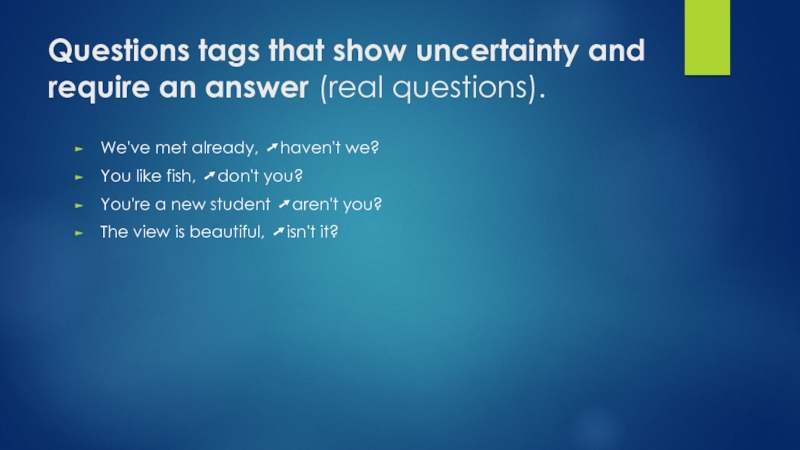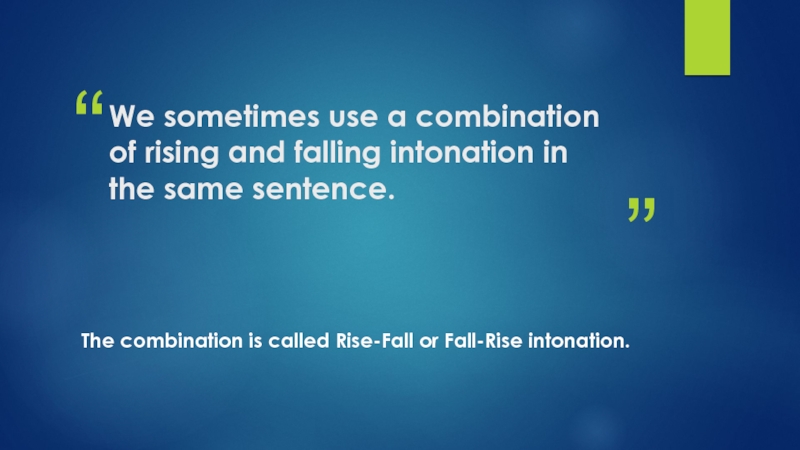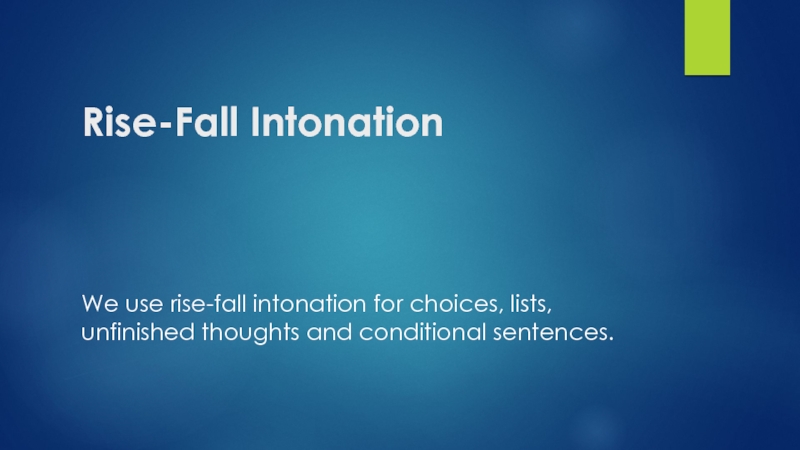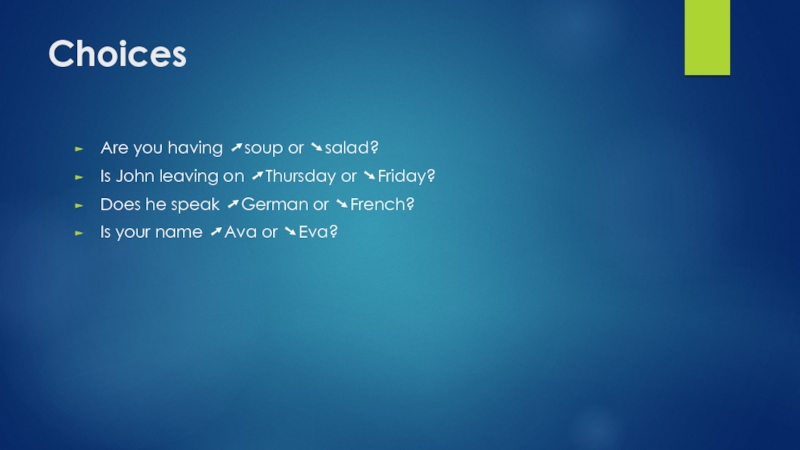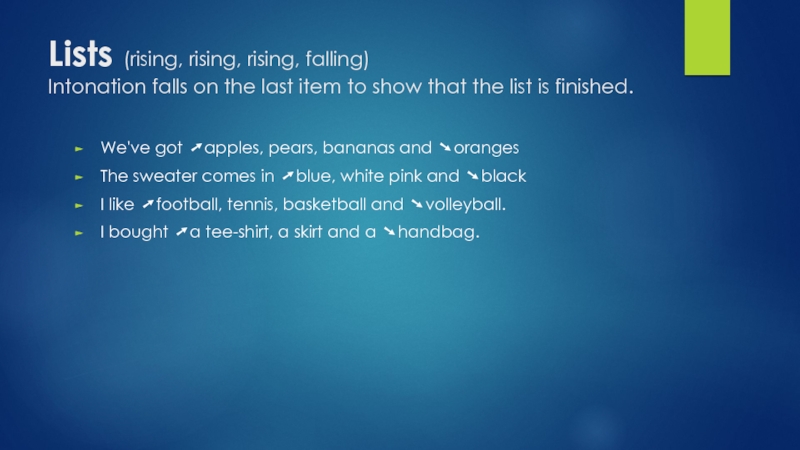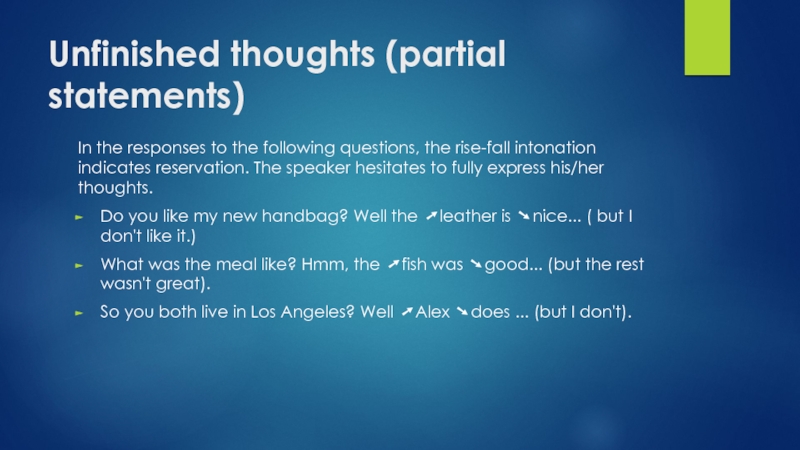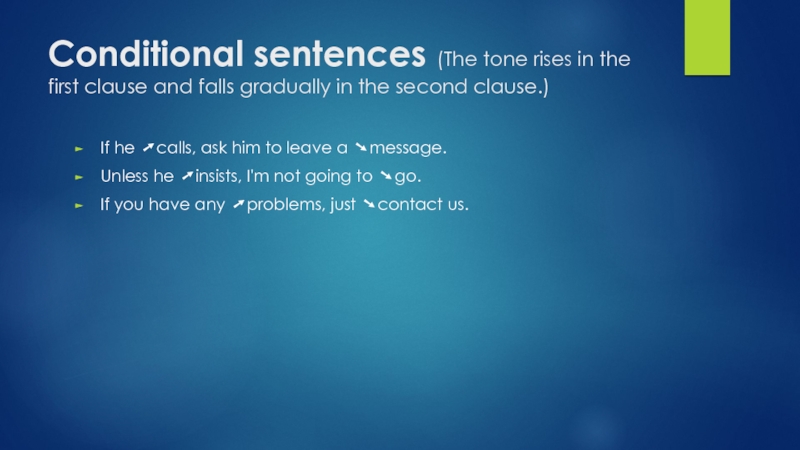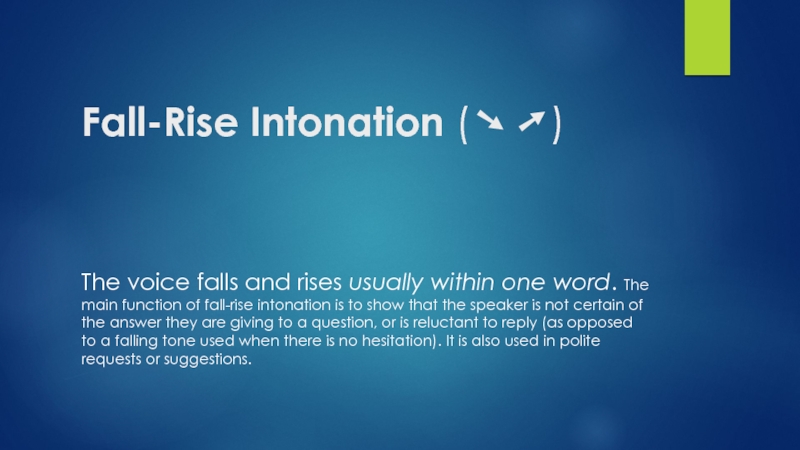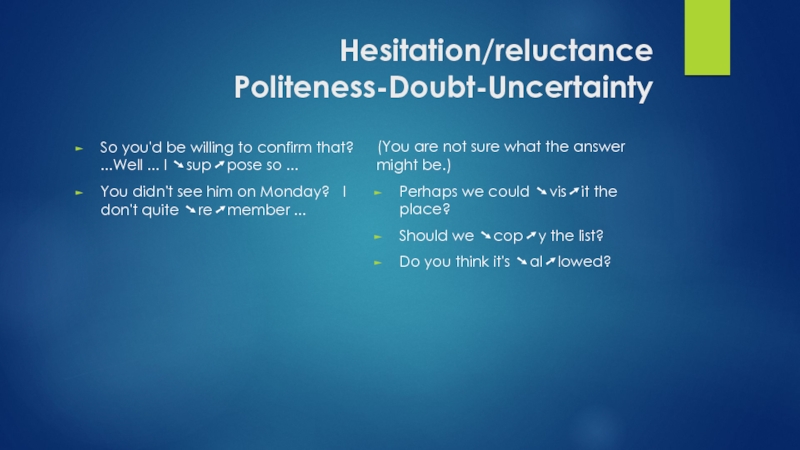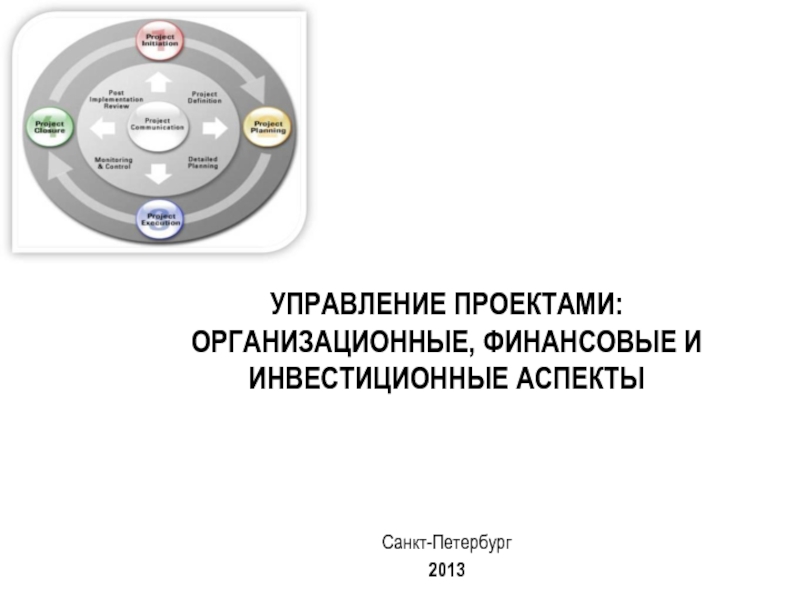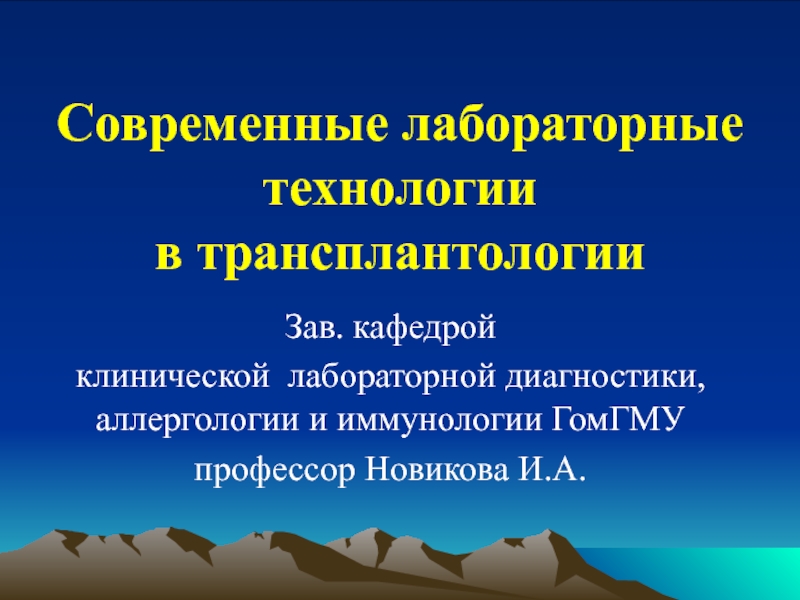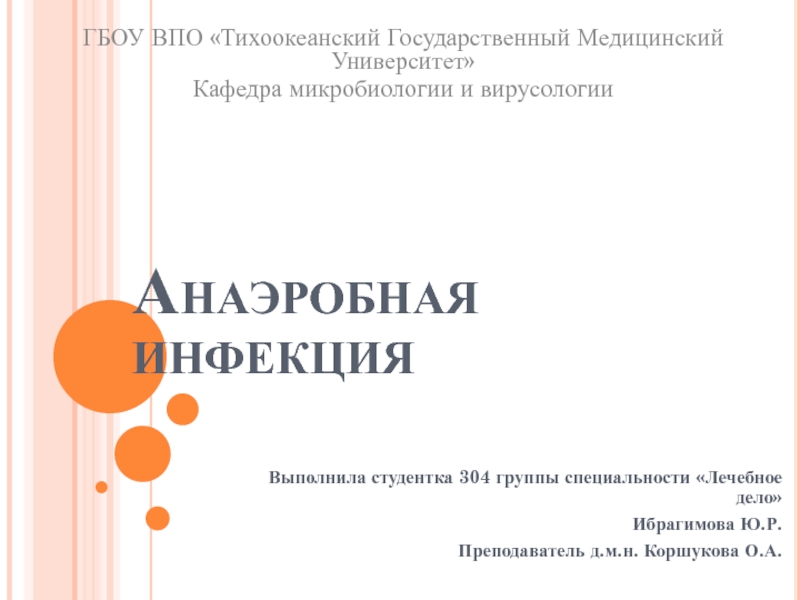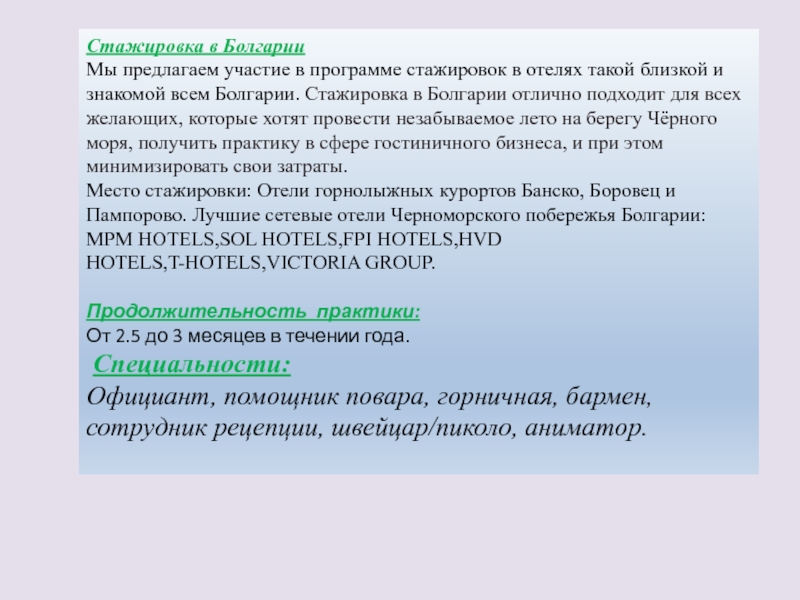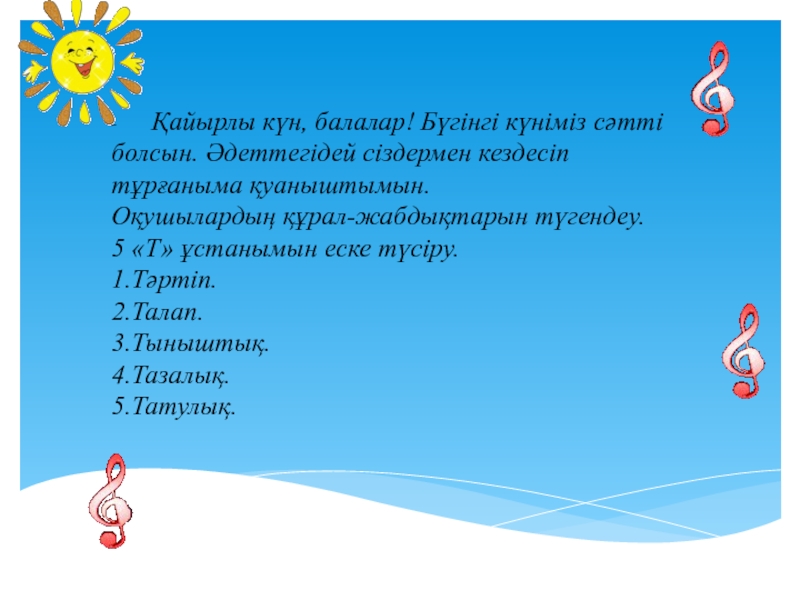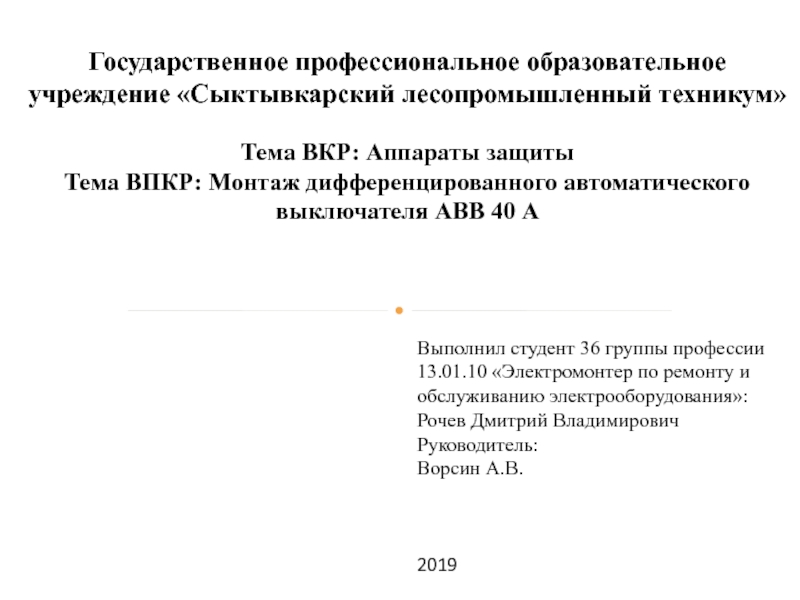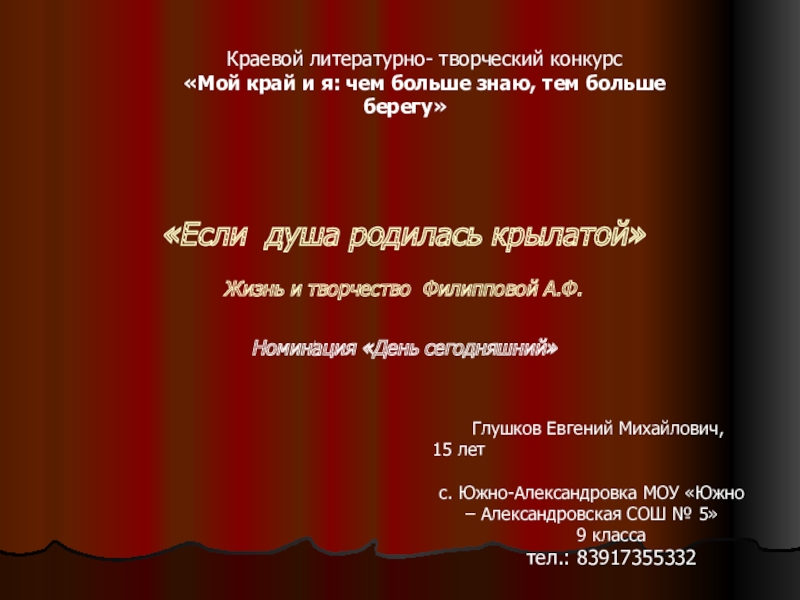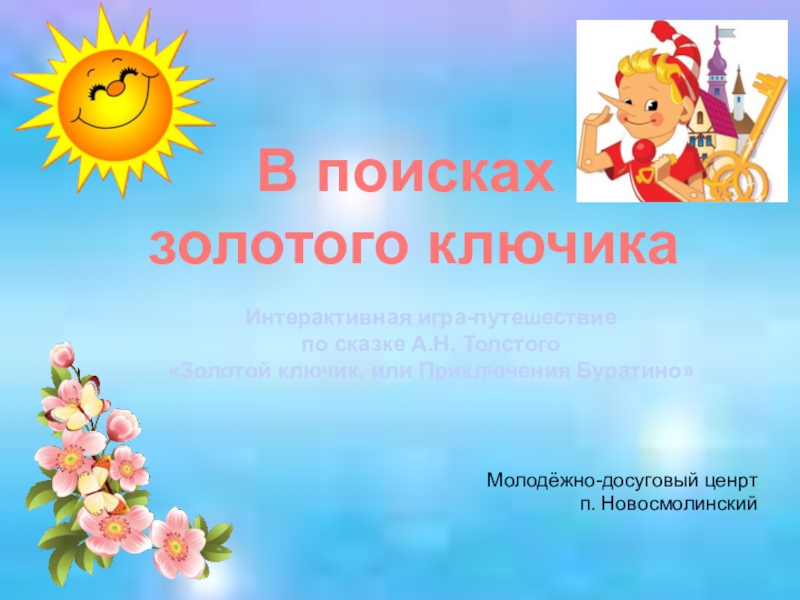Слайд 1Intonation in English Pronunciation
Слайд 2What is intonation?
Intonation and stress are closely linked. In fact
it's impossible to dissociate them. They go hand in hand.
Intonation is about how we say things, rather than what we say, the way the voice rises and falls when speaking, in other words the music of the language.
There are two basic patterns of intonation in English: falling intonation and rising intonation.
In the following examples a downward arrow (➘) indicates a fall in intonation and an upward arrow (➚) indicates a rise in intonation.
Слайд 3Falling Intonation (➘)
Falling intonation is the most common intonation pattern in
English.
It is commonly found in statements, commands, wh-questions (information questions),
confirmatory
question tags and exclamations.
Слайд 4Statements
Nice to meet ↘you.
I’ll be back in a ↘minute.
She doesn’t
live here ↘anymore.
Dad wants to change his ↘car.
Here is the
weather ↘forecast.
Cloudy weather is expected at the end of the ↘week.
We should work together more ↘often
I'm going for a walk in the ↘park.
Слайд 5Commands
Write your name ↘here.
Show me what you’ve ↘written.
Leave it on the ↘desk.
Take that
picture ↘ down.
Throw that ↘out.
Put your books on the ↘table.
Take your hands out of
your ↘pockets.
Слайд 6Wh- questions (requesting information.)
(questions beginning with 'who', 'what', 'why', 'where', 'when',
'which', and 'how')
What country do you come ↘from?
Where do you ↘work?
Which of
them do you ↘prefer?
When does the shop ↘open?
How many books have you ↘bought?
Which coat is ↘yours?
Whose bag is ↘this?
Слайд 7Questions Tags that are statements requesting confirmation rather than questions.
Not
all tag questions are really questions.
Some of them merely ask
for confirmation or invite agreement, in which case we use a falling tone at the end.He thinks he’s so clever, doesn’t ↘he?
She's such a nuisance, isn't ↘she?
I failed the test because I didn't revise, did ↘ I?
It doesn't seem to bother him much, does ↘ it?
Слайд 8Exclamations
How nice of ↘ you!
That's just what I ↘need!
You don't ↘ say!
What a beautiful ↘ voice!
That's a ↘surprise!
Слайд 9Rising Intonation (➚)
Rising intonation invites the speaker to continue talking.
It is
normally used with yes/no questions, and question tags that are
real questions.
Слайд 10Yes/no Questions
Do you like your new ➚teacher?
Have you finished ➚already?
May
I borrow your ➚dictionary?
Do you have any ➚magazines?
Do you sell
➚stamps?
Слайд 11Questions tags that show uncertainty and require an answer (real questions).
We've
met already, ➚haven't we?
You like fish, ➚don't you?
You're a new
student ➚aren't you?
The view is beautiful, ➚isn't it?
Слайд 12We sometimes use a combination of rising and falling intonation
in the same sentence.
The combination is called Rise-Fall or Fall-Rise
intonation.
Слайд 13Rise-Fall Intonation
We use rise-fall intonation for choices, lists, unfinished thoughts
and conditional sentences.
Слайд 14Choices
Are you having ➚soup or ➘salad?
Is John leaving on ➚Thursday
or ➘Friday?
Does he speak ➚German or ➘French?
Is your name ➚Ava
or ➘Eva?
Слайд 15Lists (rising, rising, rising, falling)
Intonation falls on the last item to
show that the list is finished.
We've got ➚apples, pears, bananas
and ➘oranges
The sweater comes in ➚blue, white pink and ➘black
I like ➚football, tennis, basketball and ➘volleyball.
I bought ➚a tee-shirt, a skirt and a ➘handbag.
Слайд 16Unfinished thoughts (partial statements)
In the responses to the following questions,
the rise-fall intonation indicates reservation. The speaker hesitates to fully
express his/her thoughts.
Do you like my new handbag? Well the ➚leather is ➘nice... ( but I don't like it.)
What was the meal like? Hmm, the ➚fish was ➘good... (but the rest wasn't great).
So you both live in Los Angeles? Well ➚Alex ➘does ... (but I don't).
Слайд 17Conditional sentences (The tone rises in the first clause and
falls gradually in the second clause.)
If he ➚calls, ask him
to leave a ➘message.
Unless he ➚insists, I'm not going to ➘go.
If you have any ➚problems, just ➘contact us.
Слайд 18Fall-Rise Intonation (➘➚)
The voice falls and rises usually within one word. The
main function of fall-rise intonation is to show that the
speaker is not certain of the answer they are giving to a question, or is reluctant to reply (as opposed to a falling tone used when there is no hesitation). It is also used in polite requests or suggestions.
Слайд 19Hesitation/reluctance Politeness-Doubt-Uncertainty
So you'd be willing to confirm that? ...Well
... I ➘sup➚pose so ...
You didn't see him on Monday?
I don't quite ➘re➚member ...
(You are not sure what the answer might be.)
Perhaps we could ➘vis➚it the place?
Should we ➘cop➚y the list?
Do you think it's ➘al➚lowed?

